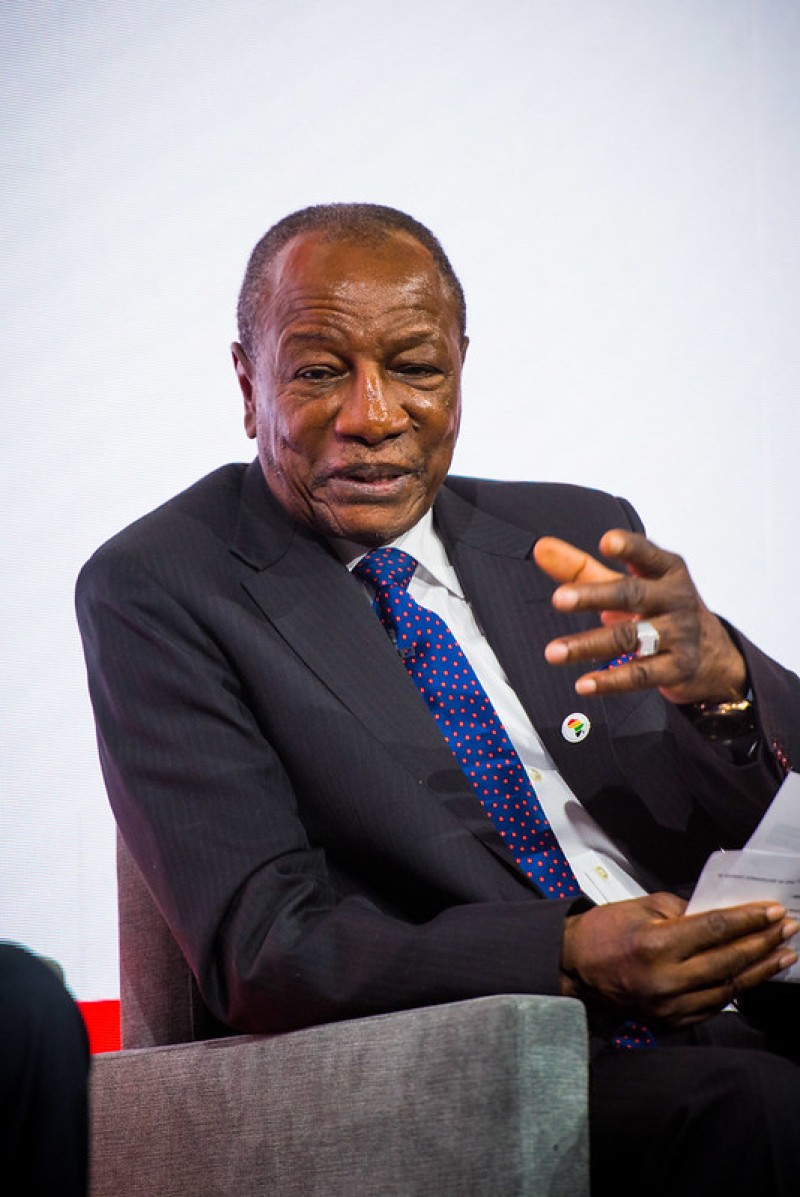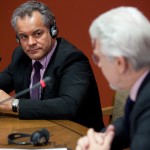The settlement agreement with the U.S. stock exchange regulator said that in 2011, Rio hired a “close friend of a former senior Guinean government official” to help it keep hold of blocks 3 and 4 of the Simandou mountain range, considered to hold some of the world’s largest iron ore reserves.
Blocks 1 and 2 had been canceled by a previous regime in 2008, and controversially granted to Beny Steinmetz Group Resources.
The SEC found that the consultant in the middle of the scandal paid $200,000 to buy T-shirts for Condé’s re-election campaign, soon after receiving his first payment from Rio Tinto.
While the settlement anonymises individuals connected to the bribery, leaked emails reveal that the unnamed “senior government official” is President Condé, and the anonymous “French investment banker” is François Polge de Combret, a friend of Condé from his student days in Paris.
The settlement includes quotes from these emails, which were published in the press seven years ago without Combret’s name and references to “the President.” Condé has denied any knowledge of the payments.
After becoming Guinea’s first democratically elected president since independence in 2010, Condé promised to fight corruption and launched a review of mining contracts, leading Rio Tinto to fear losing its remaining blocks. The company paid $7.5 million into de Combret’s Swiss bank account in July 2011, and a further $3 million in February 2016 as a reward for his influence in allowing the company to keep the licenses.
Rio Tinto also paid $700 million to the Guinean Treasury, under a publicly announced agreement in April 2011, formalizing its continued control over blocks 3 and 4.
The settlement also anonymises Rio’s former head of energy and minerals, Alan Davies, simply referring to him as a “Rio Tinto Executive.” In a leaked email from May 10, 2011 Davies wrote to Sam Walsh then head of the iron ore division: “I accept that this is a lot of money, but I also put forward that the result we achieved was significantly improved by François’ …very unique and unreplicable services and closeness to the President.” Davies and Walsh were both forced out of Rio Tinto in 2016, in the wake of the scandal.
Davies said at the time that “there are no grounds for the termination of my employment,” while Walsh said he “operated ethically and legally at all times” during his 25 years with the company. De Combret did not respond to questions from OCCRP by the time of publication.
“Without bragging, the [President’s] decision would probably have been different if I had not happened to be there,” de Combret wrote in an email quoted in the settlement. He claimed that Condé said: “I deserve a fee for the work I have done up to now, but the fee should be a lump amount that does not compromise my independence in the future.”
One Rio Tinto executive expressed concern, writing “tell [de Combret] one big lump looks like a bribe and people will wonder where the money went.”
Within days of receiving the first payment of $7.5 million, de Combret tried to transfer more than $800,000 to “a Guinean national with links to government officials,” but his Swiss bank blocked the transaction. De Combret even told the bank the transfer was destined for the President, although made on behalf of one of Condé’s other close advisers.
The SEC concluded that de Combret had attempted to use Rio Tinto’s funds “as a political contribution to [Condé’s] reelection campaign” or to pay the president’s adviser.
When the scandal first hit the headlines, Condé told Jeune Afrique magazine that he “made Rio Tinto pay $700 million in penalties to the state and give it 15% of its shares for free.”
“Do you seriously think they paid me for having twisted their arm?” he argued.
Condé was overthrown in a September 2021 coup, and reportedly lives in exile in Turkey. He has been charged with “illicit enrichment” by the current military regime, which began its own anti-corruption drive upon coming to power.
Rio Tinto said that it was “glad to have resolved this matter… on appropriate and reasonable terms.” It said it “immediately launched” an internal investigation when it became aware of the issue, and has since taken “actions to enhance our compliance programme based on best practices.”



